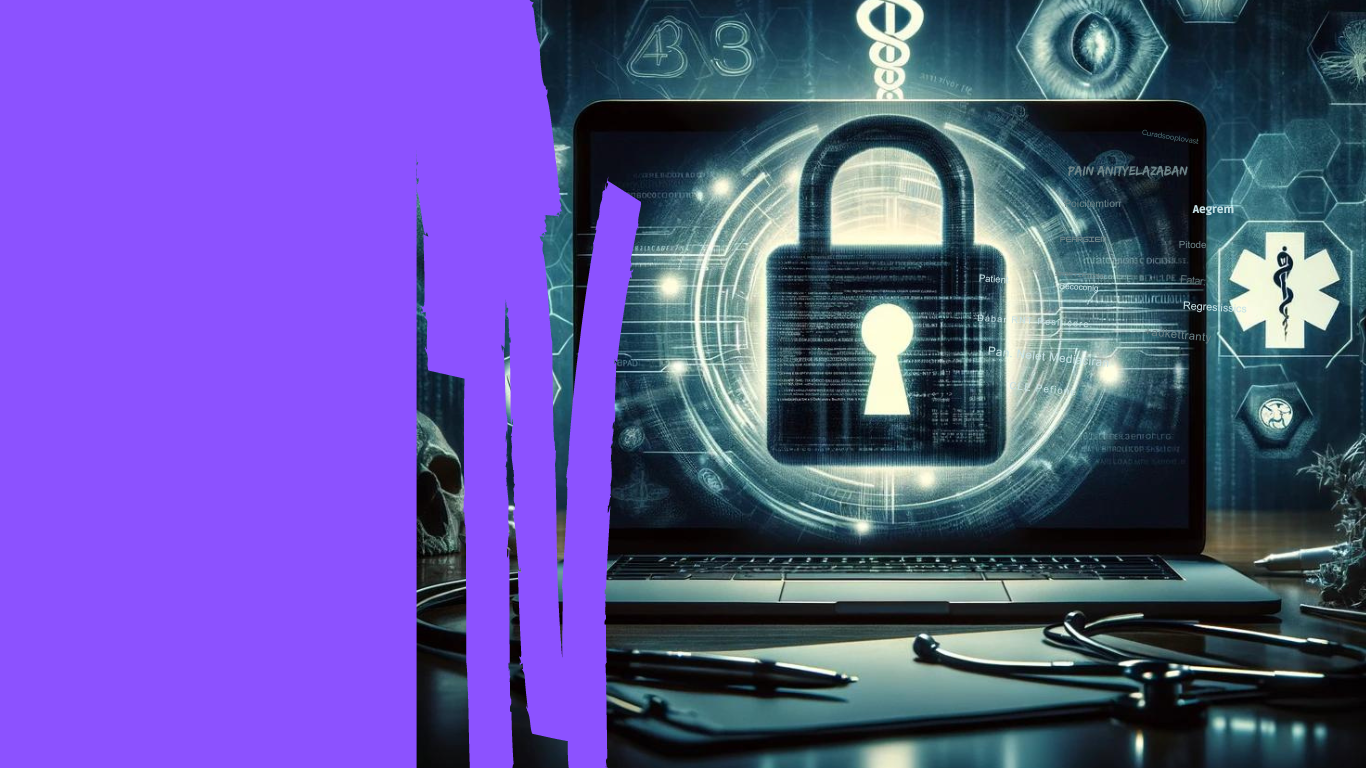The Impact of Change Healthcare’s Cyberattack on the Healthcare Industry
Change Healthcare’s Cyberattack has undoubtedly left a mark on the healthcare industry, unveiling the fragility of its technological underpinnings.
If you’re involved in the healthcare sector, especially in billing, coding, or payment processes, the reverberations of this cyber incident will likely hit close to home.
Around February 20th, a significant clearinghouse owned by United Healthcare Optum faced a crippling ransomware attack.
HHS Statement Regarding the Cyberattack on Change Healthcare
This was not just any cyberattack; it brought significant operations in the U.S. healthcare billing side to a standstill.
Key Takeaways:
- Change Healthcare’s Cyberattack exposes significant vulnerabilities in healthcare tech.
- The attack halted U.S. healthcare billing, highlighting the interconnectedness of the system.
- Small practices were hit hard, emphasizing the need for timely cybersecurity measures.
- Collaboration and rapid response are crucial for recovery and resilience against future threats.
- Investing in cybersecurity is vital for protecting patient data and ensuring operational integrity.
Understanding the Severity of the Situation
The attack on Change Healthcare was particularly debilitating due to the company’s pivotal role in healthcare transactions.
As a preferred clearinghouse for numerous insurance companies, the breach had a domino effect, impacting payments and Electronic Remittance Advice (ERAs) across the board.
The result? An almost month-long disruption has cost hospitals and practices dearly in terms of time and money.
The Ripple Effects on Billing and Payments
In the wake of Change Healthcare’s Cyberattack, the billing ecosystem experienced turmoil.
Claims submission and payments reception ground to a halt, leaving many in a financial lurch.
It vividly illustrates how interconnected and, therefore, how vulnerable the healthcare system is to technology failures.
Change Healthcare’s immediate disconnection from trading partners, insurance companies, and other clearinghouses in response to the attack only compounded the paralysis.
Hitting Hard on Small Practices
The cyberattack’s impact was especially severe for small private practices.
These entities often operate with thin financial margins and rely heavily on timely payments.
The interruption in cash flow due to Change Healthcare’s Cyberattack has been more than just an operational hiccup; for many, it threatens their survival.
In light of this, the role of IT professionals in healthcare has never been more crucial, as outlined in our comprehensive guide
Efforts to Mitigate and Recover
In the aftermath of the attack, Change Healthcare and its stakeholders scrambled to find workarounds and solutions.
Noteworthy is the Health and Human Services (HHS) intervention, which has called on insurance companies to temporarily ease some prior authorization requirements to ensure patient care continuity.
This collaborative effort to address the fallout reflects the seriousness of the cyberattack’s impact on healthcare operations.
Strategic Responses and Industry Mobilization
Following the cyberattack, Change Healthcare took immediate, albeit drastic, action by severing its connections with all associated companies.
This move, intended to contain the damage, essentially froze a significant portion of healthcare transactions, underscoring the critical role Change Healthcare plays in the ecosystem.
The Fallout for Insurance and Patient Care
With Change Healthcare’s Cyberattack severing vital communication lines, insurance companies, hospitals, and healthcare providers faced immediate operational challenges.
Not only were billing and payment processes interrupted, but patient care also felt the repercussions.
For instance, the inability to process prior authorizations for essential services like advanced diagnostic imaging pushed some patients towards emergency rooms, an expensive and inefficient alternative.
Legal and Financial Repercussions
The financial toll on healthcare entities, especially smaller practices, cannot be overstated.
Hundreds of thousands of dollars have been lost, and the ripple effects are still being felt.
In response, many are reconsidering their partnerships, with some practices initiating changes to their clearinghouse agreements away from Change Healthcare.
Furthermore, the situation has sparked legal actions, with lawsuits beginning to surface, aiming to seek compensation for the losses incurred due to the cyberattack.
A Call to Action for Better Security Measures
Change Healthcare’s Cyberattack is a stark reminder of the vulnerabilities inherent in our increasingly interconnected healthcare systems.
The incident has ignited discussions around enhancing cybersecurity measures, with a push for more robust defenses and contingency plans to mitigate the impact of similar events in the future.
Hackers Behind the Change Healthcare Ransomware Attack
The Road to Recovery and Resilience
Recovering from Change Healthcare’s Cyberattack involves more than just restoring systems and connections.
It’s about rebuilding trust within the healthcare community—between clearinghouses, healthcare providers, and insurance companies.
Moreover, it’s a call to the industry to prioritize and invest in cybersecurity, not just as a compliance checkbox but as a fundamental aspect of patient care and operational integrity.
This situation highlights a crucial lesson: the need for resilience in cyber threats.
As the healthcare industry continues to navigate the aftermath of Change Healthcare’s Cyberattack, the focus must remain on protecting patient data, ensuring the continuity of care, and fortifying the security of our digital health infrastructure.
FAQ

What is the Change Healthcare Cyberattack?
The Change Healthcare Cyberattack was a ransomware attack that occurred around February 20th.
It targeted a significant clearinghouse owned by United Healthcare Optum.
The attack exposed vulnerabilities in healthcare technology, particularly affecting the U.S. healthcare billing processes and causing widespread disruptions.
How did the Cyberattack Affect Healthcare Billing and Payments?
The cyberattack led to a halt in healthcare billing and payments, causing significant financial and operational disruptions.
With Change Healthcare playing a pivotal role in transactions as a preferred clearinghouse, the breach had a domino effect, affecting payments and Electronic Remittance Advice (ERAs) across the healthcare industry.
Who Was Most Affected by the Change Healthcare Cyberattack?
The cyberattack particularly hard-hit small private practices.
These entities often operate with thin financial margins and rely heavily on timely payments.
The disruption in cash flow threatened their survival, highlighting the severe impact on smaller healthcare providers.
What Efforts Have Been Made to Recover from the Cyberattack?
Change Healthcare and stakeholders sought workarounds and solutions in response to the attack, including the Department of Health and Human Services (HHS) intervention.
HHS called on insurance companies to temporarily ease prior authorization requirements, among other collaborative efforts to ensure the continuity of patient care and mitigate the impact.
What are the Legal and Financial Repercussions of the Cyberattack?
The financial toll on healthcare entities, especially smaller practices, has been significant, with substantial losses reported.
Many are reconsidering their clearinghouse agreements and moving away from Change Healthcare, and legal actions are emerging seeking compensation for the damages incurred due to the cyberattack.
How Can the Healthcare Industry Prevent Future Cyberattacks?
The incident underscores the need for enhanced cybersecurity measures within the healthcare industry.
There’s a push for more robust defenses and contingency plans, including investing in cybersecurity as a fundamental aspect of patient care and operational integrity, to mitigate the impact of similar events in the future.
Final Thoughts
The cyberattack on Change Healthcare underscores the pressing vulnerabilities in our healthcare system’s digital framework, particularly impacting billing and payments.
It highlights the sector’s dependency on technology and the consequences of its failure, which affect entities of all sizes, with small practices being hit hardest.
This incident catalyzed a unified effort toward recovery, showcasing the critical role of collaboration in addressing cybersecurity threats.
The aftermath has prompted a reevaluation of cybersecurity practices across the healthcare industry.
Stakeholders are now more inclined to invest in robust security measures, understanding that protecting patient data and ensuring operational integrity are paramount.
This event is a stark reminder of the need for vigilance and proactive cybersecurity strategies.
As the healthcare sector navigates its recovery, it shifts to building resilience against future cyber threats.
This involves technological upgrades and fostering a culture of security that prioritizes patient care and data protection.
The path forward demands innovation and commitment to safeguarding the digital landscape of healthcare, ensuring a more secure and resilient infrastructure for the future.
